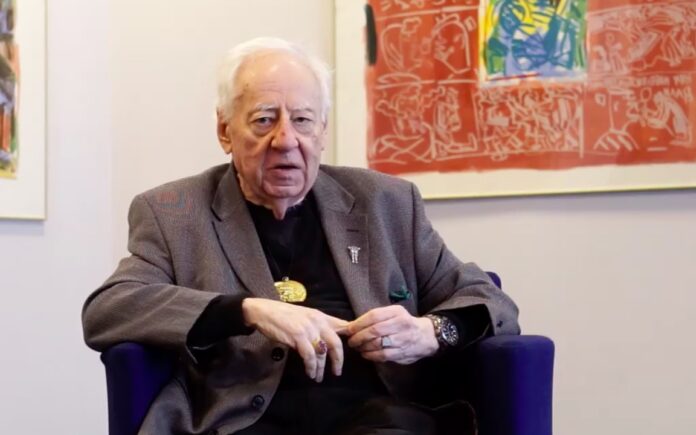CARMELO STRANO ON LUCIE-SMITH’S POETRY
Lucie-Smith’s very complex life, from geography to intellectual curiosity, was published in an interview on Fyinpaper (edited by Roberto Salvini) on 20 December 2019. He is an internationally renowned art critic, but sometimes lesser known as a poet. However, regarding his poetry, one could say it is almost his ‘second-skin’, to the point that this possible priority has no an absolute value. In fact, poetry has always been his primary interest, as an author, critic and promoter of literary culture since the 1950s.
Free verses, but carefully punctuated by a vigorous succession of content rather than rhythm for its sake. It seems that the sound and the rhythm of poetic phrasing give way to the mix between strong and raw life and existential reflections. In this mix, the familiar background and moments of art and poetry, caught in their bets with daily actions, often appear. Just when the reader feels that the Jamaican-born English poet is about to make the atmosphere rarefied, he creates a surge that, at the same time fantastic and realistic, immediately gives blood and body to the weaving of the story. And you realize that everything is throbbing in a raw and merciless way, especially dry. Words and language are essential and characterize immediately, let’s say physiologically, every thought-emotion pattern. A poetic voice out of geography. Descended into Western culture, of course, but also fueled by interculturality, not on the semantic ground, but definitely at the social and existential level.
BLUEBEARD’S WIFE
When Bluebeard died
His first and last wife
Inherited his castle.
Now she could go
Into all the rooms
That were once forbidden.
Some were stuffed
With female corpses.
Those she already
Half-knew about.
In her time she had bagged and labeled
So many dried-out bodies.
What really surprised her
Were the endless
Untidy
Cellars and attics
Inhabited by the living –
Whining poor relations,
Dependent children.
She had no need of those.
She tore up Bluebeard’s will.
A rich widow now,
She’s busy husband-hunting.
GONE MISSING
What happened to them all,
Those poets
I used to drink in pubs with?
Quarrel with?
Even sit on committees with?
I hear their faint cries.
They are imprisoned
Between the covers
Of prize-winning biographies.
My television screen flickers
With shadowy figures
Who look a bit like them.
‘But the voices are wrong,’
I say to myself,
‘And so are the gestures.’
Then suddenly I’m seized
By a great wind
That whirls me away
Towards a future
That has no place for them.
COURBET AND INGRES
Courbet and Ingres,
My heroes!
Ingres admired the sign painter
Who got it ‘just so’.
Just enough paint on the brush,
No less and no more.
Courbet wouldn’t shut the door
Of his outside crapper.
He sat there eliminating
From his hairy backside,
Meanwhile admiring the landscape.
Like Ingres before him,
He knew what mattered –
Beautiful dirt, and
Inevitable dirt.
JACKSON POLLOCK IN TEHRAN
Your macho cowboy swagger
Once seduced a Jewish heiress.
She was indignant later,
When, unable to get it up for her,
You pissed in her fireplace.
Dribbling on canvas
Became your substitute
For the kind of sex
You could only find
Passed out cold
On the urine-soaked pavements
Of New York’s Bowery.
Now, in a museum storeroom,
In a country where they don’t
Even have a name
For what probably ailed you,
I see the monstrous demi-gods
Grappling and – is it? – coupling
Just under the surface
Of one of your mysteriously
Potent liquefactions.








